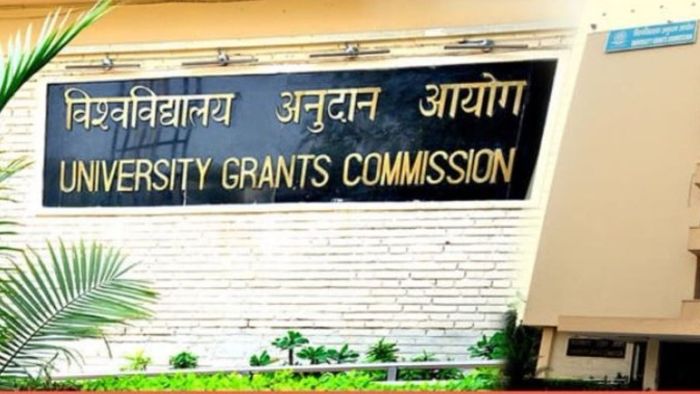UGC proposes draft regulations to transform higher education
UGC has proposed new draft regulations to elevate higher education in India, focusing on global alignment and skill enhancement.

- Dec 05, 2024,
- Updated Dec 05, 2024, 12:19 PM IST
The University Grants Commission (UGC) has proposed draft regulations that promise to revolutionise India's higher education landscape, breaking down traditional academic barriers and offering unprecedented student mobility.
According to UGC Chairman M Jagadesh Kumar the draft regulations aim to "transform higher education in India by introducing greater flexibility, removal of disciplinary rigidity, inclusivity, and multidisciplinary learning opportunities for students."
These regulations break traditional academic boundaries by facilitating biannual admissions, allowing students to enroll twice a year in July/August and January/February. The most radical departure comes in admission eligibility.
"We have decoupled eligibility for UG and PG admissions from the rigid discipline-specific requirements of school education," Kumar emphasised.
Students can now pursue programmes across different disciplines, irrespective of their previous academic background. The key condition is simple: demonstrating competency by clearing relevant entrance examinations. This approach opens unprecedented academic pathways for students who might have been previously constrained by their earlier educational choices.
The credit structure has been reimagined to promote holistic development. Students will now earn 50% of their credits in their major discipline, with the remaining 50% dedicated to skill development, apprenticeships, or multidisciplinary subjects.
"With these reforms, we ensure that Indian higher education evolves to meet global standards while staying rooted in inclusivity and adaptability to diverse learner needs," Kumar explained.
Degree structures now offer remarkable flexibility. Undergraduate degrees can be completed in three or four years, with innovative provisions for Accelerated Degree Programmes (ADP) and Extended Degree Programmes (EDP). Institutions can allocate up to 10% of their intake for accelerated programmes, recognising that learning is a personalised journey.
Drawing inspiration from the National Education Policy 2020, the regulations grant higher education institutions autonomy in determining attendance requirements.
"Considering the diverse learning modes promoted by NEP 2020, HEIs shall decide on the minimum attendance requirement of students in different programmes," Kumar noted, highlighting the shift towards more adaptive educational approaches.
The regulations introduce multiple entry and exit options, recognition of prior learning, and the ability to pursue two undergraduate or postgraduate programmes simultaneously. This approach dismantles traditional academic barriers, offering students unprecedented flexibility in their educational pursuits.
Students completing four-year undergraduate degrees—whether honours programmes in sciences like Physics, Biology, or Mathematics, or professional degrees like BE and B.Tech—will be eligible for two-year postgraduate programs in corresponding disciplines.
Perhaps most significantly, the regulations recognise that education is not a one-size-fits-all experience. By providing multiple pathways, flexible credit structures, and diverse learning opportunities, the UGC is signaling a fundamental reimagining of higher education in India.
"With these reforms, we ensure that Indian higher education evolves to meet global standards while staying rooted in inclusivity and adaptability to diverse learner needs," Kumar emphasised.